Sen. Comerford talks health care legislation with region’s physicians
| Published: 03-15-2024 3:55 PM |
SOUTH DEERFIELD — Before a room filled with local health care professionals, state Sen. Jo Comerford shared details about legislation she’s filed this session in hopes of bolstering the health care system to “do well by” those physicians and, in turn, the people they serve.
Every table at Gianni Fig’s Ristorante on Wednesday evening was filled with Franklin and Hampshire county members of the Massachusetts Medical Society who heard updates on both Comerford’s bills and the ones she supports. Some of the health-related bills Comerford has filed include ones to strengthen local public health operations; change state law that requires MassHealth to recover assets from members’ estates after their death; allow spouses to serve as caregivers; support access to care for older individuals and people with disabilities; and prevent pancreatic cancer through screening, education and support programs.
Comerford, D-Northampton, first pointed out the “deep and rife inequities” across the state that were thrust into the spotlight when the COVID-19 pandemic hit, putting people of color at greater risk of getting sick or dying from the disease.
“At this time the Senate asked me to lead the COVID response for the Senate and I was pretty green,” Comerford told Medical Society members. “I had just gotten in but I was health care chair. So we convened statewide calls with the public health officials from across the commonwealth, and we understood from them where the resources were needed and the state’s rollout of vaccines. ... The testing was pretty horrible initially.”
Comerford said the SAPHE 2.0 Act, also known as H.2204, would transform the local and regional public health system by deepening the ability to share services, incorporating improved training, addressing disparities in delivery of services and adding a “real data component.”
She also spoke about S.67, “An act allowing spouses to serve as caregivers.”
“We know very well that there’s a shortage [of personal care attendants] so people are often forced to go without,” Comerford said. Under current MassHealth regulations for personal care attendant programs, “you can be a divorced spouse of someone and get paid to be their caregiver, you can be a second cousin, you can be a daughter and niece and nephew, a grandchild, and get remunerated to help someone stay in their home and get the care they need.” However, spouses are a notable exception under the current regulations.
Comerford also explained to Medical Society members, the kinds of related legislation her office is supporting, like Medicare for All, known as H.1239, and ways to strengthen primary care and advance health equity.
Article continues after...
Yesterday's Most Read Articles
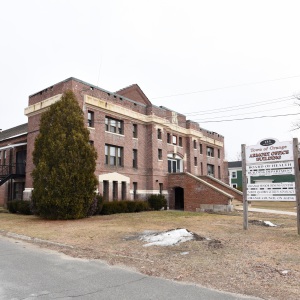 Orange Selectboard declares armory as surplus property
Orange Selectboard declares armory as surplus property
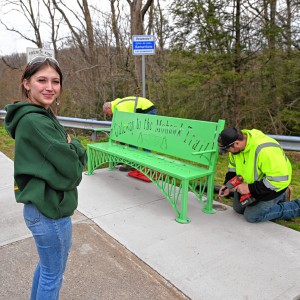 Franklin Tech student welds ‘artistic’ bench for French King Bridge
Franklin Tech student welds ‘artistic’ bench for French King Bridge
 Carol Doucette of Royalston receives $15,000 from Publishers Clearing House
Carol Doucette of Royalston receives $15,000 from Publishers Clearing House
 Partnership hopes to address Lake Ellis stormwater runoff
Partnership hopes to address Lake Ellis stormwater runoff
 DA to announce breakthrough in 1989 unsolved homicide
DA to announce breakthrough in 1989 unsolved homicide
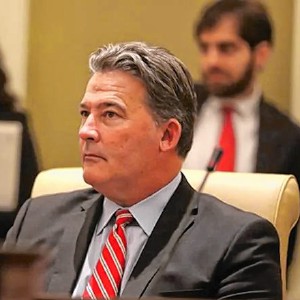 Court rulings may force action on home equity theft
Court rulings may force action on home equity theft
After citing legislation she supports, Comerford paused her presentation to compliment the attendees.
“You are really powerful,” she said. “Flex your muscles every chance you can. I believe the government can and should work, but it doesn’t. It’s dreadfully broken. But the thing that makes government work is you and your patients and your colleagues and the networks you’re in.”
Medical Society members were then given the opportunity to ask questions, with Dr. Stephen Martin, who specializes in family medicine and addiction medicine specialist at UMass Memorial Health, expressing some concerns about treatment access.
“In the past few days, I’ve taken care of five people who have overdosed recently, a sixth who didn’t survive,” he said. “The idea that primary care is going to take on opioid use when there’s no primary care is a misled policy and we’ve been leaning on that for 20 years now. ... The lack of access is a lagging indicator. This is a tree that has fallen down and for decades had a termite problem.”
Comerford responded by saying how grateful she was for Martin “saying so starkly how broken things are,” and asked to set up a time to meet with him to hear his ideas.
Responding to comments about a shortage of medical assistants and nurses, Comerford said numerous bills have been filed to allow people to work at the highest level under their licenses, whether they’re dental therapists, practitioners or midwives. She also mentioned the MassReconnect program that allows tuition-free community college enrollment for eligible residents ages 25 and older, including those pursuing nursing degrees. In an effort to curb the shortage, Comerford also filed S.1336, which would expand access to the certified nurses’ aides (CNA) certification process by providing tests in multiple languages.
The medical professionals in attendance also brought up concerns regarding homelessness, the prescription drug shortage and rural constraints, all of which Comerford said are important to her.
“These are my constituents,” Comerford said in an interview. “My job is to be available. ... It’s a great opportunity for me to come face-to-face with medical professionals who are on the front lines of keeping our people well and helping them when they’re not well. ... We’re not doing well by them or as well by them as we can ... and that means that we’re not doing well by the people in western Massachusetts who need their care. … When these folks aren’t able to thrive, the system doesn’t work.”

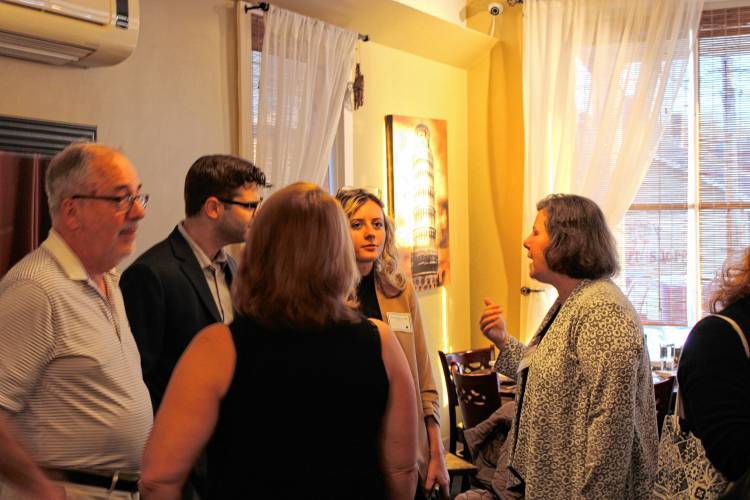
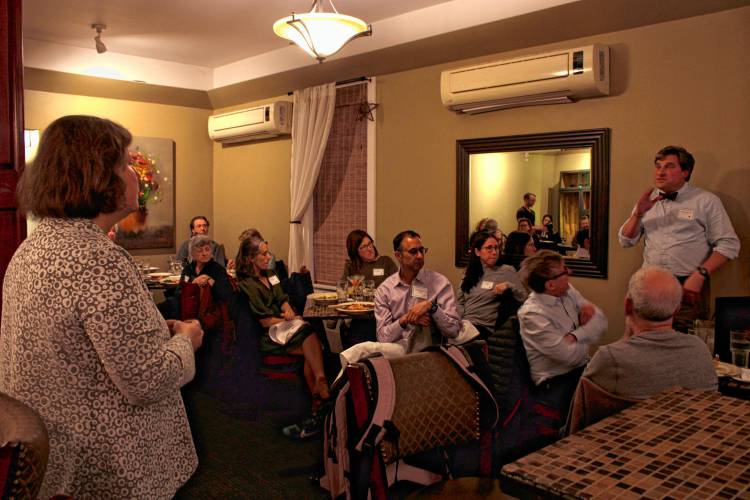
 Royalston Selectboard backs Town Meeting warrant
Royalston Selectboard backs Town Meeting warrant Earl Sweat seeks seat on Phillipston Selectboard
Earl Sweat seeks seat on Phillipston Selectboard Lobby push aims to propel doggie day care standards
Lobby push aims to propel doggie day care standards